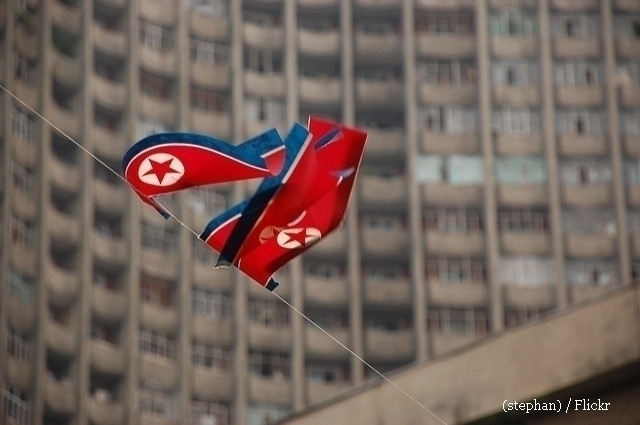North Korea, a hot spot on the world’s map
The latest UN Security Council Resolution, stipulating fresh sanctions against North Korea, has been hailed in Strasbourg by the Vice – President of the European Commission Federica Mogherini, the current High Representative of the European Union for Fore

Corina Cristea, 15.09.2017, 13:20
Addressing the European Parliament on current issues on the international policy agenda, Mrs. Mogherini said that these sanctions are not a goal in themselves, but are just a means to open the gate for political negotiations, stressing that there are no military solutions for this crisis, as a military attack would be useless and would cause more damage than good.
At the same time, Mogherini appreciated the unitary approach of the EU countries that are also members of the Security Council, which spoke their view in a single voice. On the other side of the Atlantic, the President of the United States Donald Trump has stated that the latest sanctions imposed on Pyongyang are just a small step, and not what should normally happen in order to put an end to North Korea’s nuclear programme.
The latest sanctions, the toughest so far, limiting the imports of fuels and banning the exports of textiles, were imposed in response to the test conducted by North Korea on September 3rd, at an unprecedented level, and the middle-range missile attack in mid August. In a talk on Radio Romania, the political and military analyst Iulian Chifu spoke about Pyongyang’s aggressive policy and potential responses on the international community’s part:
Iulian Chifu: “We cannot speak of a war in the sense of a long-term war. In my opinion, in the worst-case scenario it will be the US plan of a surgical action, which, in just one night, will eliminate all nuclear and ballistic capabilities and the leadership of North Korea. Should a military action take place, this is how I believe it will unfold. That doesn’t mean that against the background of an unstable North Korea we are not going to have major issues. I would expect a Chinese invasion in northern Korea to stabilize the situation and maintain the buffer zone. I also don’t expect the West to come up with an intervention or attack formula for the region. It’s clear to me that everything will eventually be settled through negotiations, which are to take into account the situation on the ground at that time. And I believe that the South should be prepared for reunification. At any time there may be the risk of an attack, a show of force targeting South Korea as a pro-active pre-emptive strike. I believe though that reason will prevail and that there are also means to find a peaceful formula and avoid war except for an intervention of a surgical nature.”
From the viewpoint of the North Atlantic Treaty Organisation, North Korea’s nuclear programme poses a global threat, which requires a global response. This also includes NATO, as its secretary general, Jens Stoltenberg told the BBC. However, the NATO official didn’t specify whether an attack over the US territories in Guam might activate the Alliance’s collective defence principle. Guam, an American territory in the Pacific Ocean, is a major US outpost, which has attracted a lot of heat from Pyongyang’s propaganda machine. “I will not speculate about whether Article 5 will be applied in such a situation” Stoltenberg said. “We are now totally focused on how we can contribute to a peaceful solution of the conflict. “There is no easy way out of this difficult situation, but at the same time we have to continue to work for political solution, continue to press also the economic sanctions.”
In the aforementioned network, Russia and China have retained their special status.
The new sanctions voted by the Council are not as harsh as they appeared in the version prepared by the USA, with the concessions resulting in the aftermath of talks Washington held with Moscow and with Beijing, respectively, and the vote being the prerequisite for the talks. Shortly after the new measures had been voted, China reiterated its appeal for dialogue. We should note that China wants the denuclearization of the region, but to a greater extent, China wants stability.
Concurrently, Moscow highlighted the lack of an alterative solution to the North-Korean problem, through political and diplomatic means. Pundits are unanimously saying that a military conflict would be equally devastating for both Pyongyang and South Korea. At the same time, other analysys support the idea that North Korean leader Kim Jong-un seeks to obtain a nuclear defense rather than an open conflict.






























